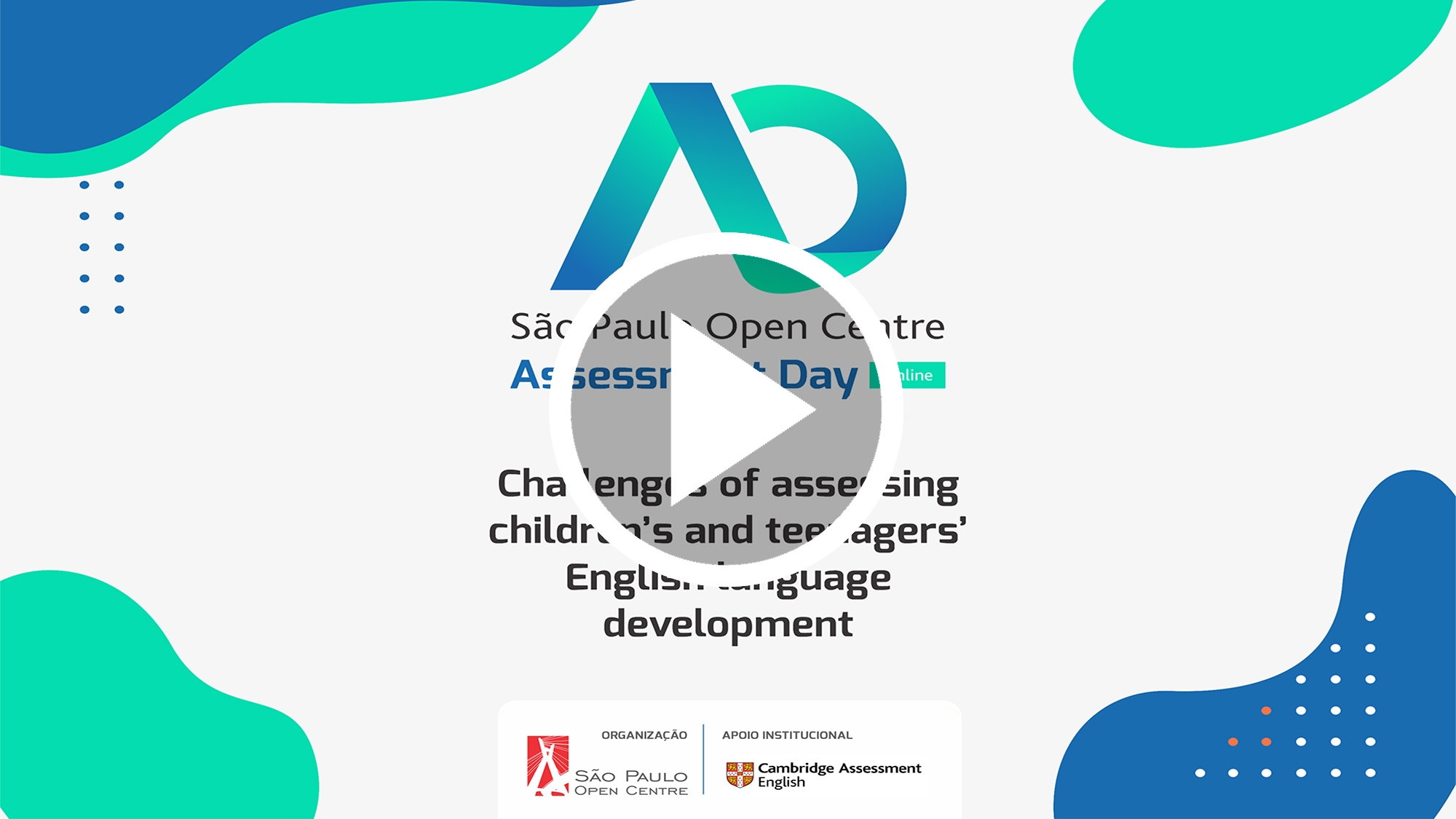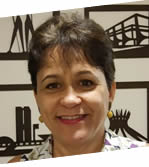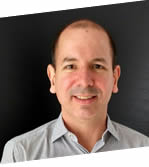
Assessment Day 2021

Sobre o evento
No dia 23 de julho de 2021, o São Paulo Open Centre promoveu seu primeiro Assessment Day, cujo tema foi Challenges of assessing children’s and teenagers’ English language development.
Foi um dia especial onde aprendermos mais e conversarmos sobre questões específicas, relacionadas à avaliação de línguas em nossas escolas. Tivemos a participação de quatro grandes profissionais, o apoio de Cambridge Assessment English e a participação de um grande número de professores, coordenadores, diretores e amigos da área de língua inglesa e dos diversos setores de educação, aos quais muito agradecemos pela presença e participação!
PALESTRANTES
Judit Kormos
Lancaster University – UK
Title: Fairness and accessibility in language assessment for teenage language learners with specific learning differences
Abstract: The number of teenage students with Specific Learning Differences (SpLDs) taking language proficiency tests is increasing. It is therefore essential that neither the test design nor test implementation procedures create an unfair barrier for these students. This session will start with a comprehensive overview what makes a test fair and valid from the perspective of test takers with SpLDs. Next I will review some recent research findings on how various types of special arrangements impact on the performance of students with SpLDs. In the second half of the session we will explore ways to make summative and formative assessment more accessible for language learners with SpLDs.
Judit Kormos is a Professor in Second Language Acquisition at Lancaster University. She was a key partner in the award-winning DysTEFL project sponsored by the European Commission and is a lead educator in the Dyslexia and Foreign Language Teaching massive open online learning course offered by FutureLearn. She is the co-author of the book Teaching Languages to Students with Specific Learning Differences with Anne Margaret Smith. She has published widely on the effect of dyslexia on learning additional languages including a book entitled The second language learning processes of students with specific learning difficulties. She is the author of multiple research papers that investigate the role of cognitive factors in second language acquisition.
Professor Miriam holds a Bachelor degree in English Language and Literatures from the Pontifical Catholic University of São Paulo (1989), license teacher degree from the Pontifical Catholic University of São Paulo (1989), master degree in English language studies from the Federal University of Paraná (1996), doctorate degree in Applied Linguistics from the State University of Campinas (2007) and post-doctorate in Applied Linguistics from the State University of Londrina (2016). She works at the Academic Department of Modern Languages at the Federal University of Technology-Paraná. Currently conducts research in the group Technology, Teacher Education and Literacies. Coordinates the project entitled Mobile, Digital and Multiliteracies to Visually-Impaired Students. Also concentrates studies on Assessment Literacy, Academic Literacies, Mobile Literacy and Multiliteracies.
DISCUSSION
PANEL
Marianne Nikolov is Professor Emerita of English Applied Linguistics at the University of Pécs, Hungary. Early in her career, she taught English as a foreign language to young learners for 18 years. She taught in B.A. and M.A. TEFL, and Ph.D. courses and is still working with doctoral students. Her research interests include: the age factor, early learning and teaching of modern languages, assessment of processes and outcomes in language education, individual differences such as aptitude, attitudes, and motivation contributing to language development, teacher education, teachers’ beliefs and practices, and language policy. Her publications include longitudinal classroom research, large-scale national assessment projects as well as case studies.
In spite of the advances regarding language assessment in all levels of the educational process, it seems to continue haunting learners and teachers themselves. This is especially true of young learners’ EFL assessment. Teachers from this context, in Brazil, are still confused about what to teach their students, let alone what to assess. The purpose of this talk is both to reflect on and to dispel the myths that have been grown up in this area.
MODERADORES:

Gladys Quevedo
Gladys Quevedo holds a degree in English Language and Literatures from the Pontifical Catholic University of São Paulo (PUC-SP) (1986) and holds an MA (2007) and a PhD (2011) in language studies from the State University of Londrina (UEL). She has also carried out post-doctoral research on assessment twice (2013 and 2018) at the University of Campinas (UNICAMP). She also holds the Certificate for Overseas Teachers of English – COTE (1996) and the Diploma in English Language Teaching to Adults – DELTA (1997). She works at the University of Brasília (UnB) and is part of the following associations: BrazTesol Assessment SIG, BrazTesol Regional Chapter Brasília, International Association of Language Testing (ILTA) and Latin American Association for Language Testing and Assessment (LAALTA).

Alberto Costa
Alberto Costa is Senior Assessment Manager Americas for Cambridge Assessment English. He has a solid background in teaching English and has worked as an English teacher, academic consultant and teacher trainer for the teaching certifications of Cambridge English CELTA and Delta.




